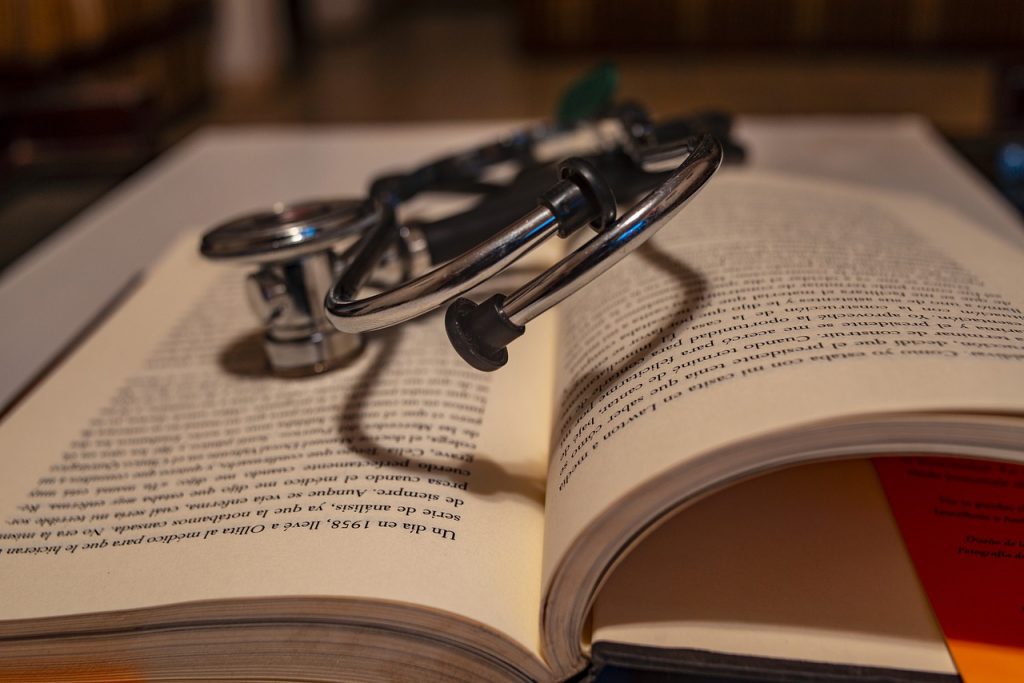Medical Greek vocabulary Posted by Ourania on May 12, 2020 in Vocabulary
Γεια σας! Nowadays, we are getting used to a new vocabulary, a mostly medical vocabulary, regarding the coronavirus crisis and our behavior in response to it. The medical vocabulary is full of Greek words or words of Greek origin or root, as medical students all over the world can testify. But for most people, many of these words sound very strange or they are really perplexing. Today, let’s explore some of them, particularly the ones we hear all the time on the media these days. Let’s take a look on their origins, roots and original meanings; this can help us understand them better and familiarize ourselves with this vocabulary.
-
Epidemic: επί + δήμος
ο δήμος (ancient Greek) = ο λαός = the people
The word epidemic signifies something bad which falls upon the people, an outbreak, a plague.
We should note, however, that ancient Greeks, and mainly Hippocrates – the person to go to when encountering a medical problem in antiquity – used the word to refer to common, prevalent, or seasonal diseases.
-
Pandemic: πάν + δήμος
πάν = όλος = all
Pandemic refers to something bad which falls upon all the people.
Although it’s a Greek word, it wasn’t used with its current meaning until the mid-17th century, when the English language adopted it to refer to diseases.
-
Crisis: from κρίνω = to judge, to decide
Nowadays, we use the word twofold. Firstly, in the medical field, to denote a decisive, a turning point of a disease for better or worse, and, secondly, more broadly, especially in the fields of finance and personal relations, to refer to a period of great difficulty. However, in modern Greek, it is also still used with its original meaning, that is, judgment, opinion based on logical processes.
-
Symptom: σύν + πίπτειν
πίπτω (anc. Gr.) = πέφτω (mod. Gr.) = to fall
The compound word means something that befalls, happens. It refers to the subjective evidence of a disease or the evident reaction, whether physical or mental, which show the presence of a disease.
-
Diagnosis: διά + γιγνώσκειν
γιγνώσκω (anc. Gr.) = γνωρίζω (mod. Gr.) = to know, recognize, distinguish
It is the act of identifying a disease from its signs and symptoms. In other contexts, it can mean the analysis of the nature of a condition, situation or problem.
-
Clinical: from κλίνη = bed
However, in modern Greek, we call it κρεβάτι (= bed).
* Note: learning the ancient words may seem useless in the beginning but un-luckily it is not! Even though we may use a totally different word consistently in modern Greek, all compound words and some of the derivatives that relate to the same notion come from the ancient words! So, we should at least be aware that there are multiple roots expressing the same idea. (More on this topic is to follow soon).
-
Cardiac: from καρδιά = heart
It’s pretty straightforward, καρδιά μου!
But, seriously, the word has been used since Homer’s times but it could also denote core, and prowess or courage.
-
Pneumonia: from πνεύμων = lung
πνέω = to breathe, to blow
That’s easy to understand, but quite difficult to pronounce: pnevmonia.
-
Hypertension: υπέρ + τάση
It is the condition when the arteries are blocked or narrowed, so blood passes through with more difficulty, higher strain. We also refer to it as high blood pressure.
-
Diabetes : διά + βαίνω
= to pass through
This condition was named as such because it is characterized by excessive discharge of urine or excessive quantity of sugar in the urine.
I hope that this was helpful in shedding light into some of the words that have become very popular these days but may sound really strange to non-native Greek speakers, mostly due to their ancient origin.

Build vocabulary, practice pronunciation, and more with Transparent Language Online. Available anytime, anywhere, on any device.






Comments:
Helene:
Great article Rania! Very interesting, καρδιά μου ?
Ourania:
@Helene Thank you, Helene! 🙂